Disclosure: Meeple Mountain received a free copy of this product in exchange for an honest, unbiased review. This review is not intended to be an endorsement.
When you think of the French publisher IELLO, what games come to mind?
King of Tokyo? For sure, and to celebrate turning 10 years old, a King of Tokyo Monster Box is on the way later this year.
Decrypto? A favorite here in our house, and one that works exceptionally well as a couples date night where you want to play a quick game of codebreaking with your partner (especially if you know each other really well).
Bunny Kingdom? Another favorite of the Meeple Mountain team; I’ve never played it, but Bunny Kingdom has the kind of title that is hard to shake. A kingdom full of rabbits? Somehow, I think that would work.
But what I really don’t think of with IELLO are complex games for experienced gamers. While Meeple Mountain was high on a mid-weight release, Kitara, the other games above definitely qualify as lighter fare that are plenty fun, but not too heavy of a mental lift.
IELLO is working to change this image somewhat with the premiere of their IELLO Expert line. The first game in the IELLO Expert series is Khôra: Rise of an Empire, and after receiving a review copy from the COO of IELLO USA at Gen Con, I have to say that I’m really intrigued to see what’s coming next from this line.
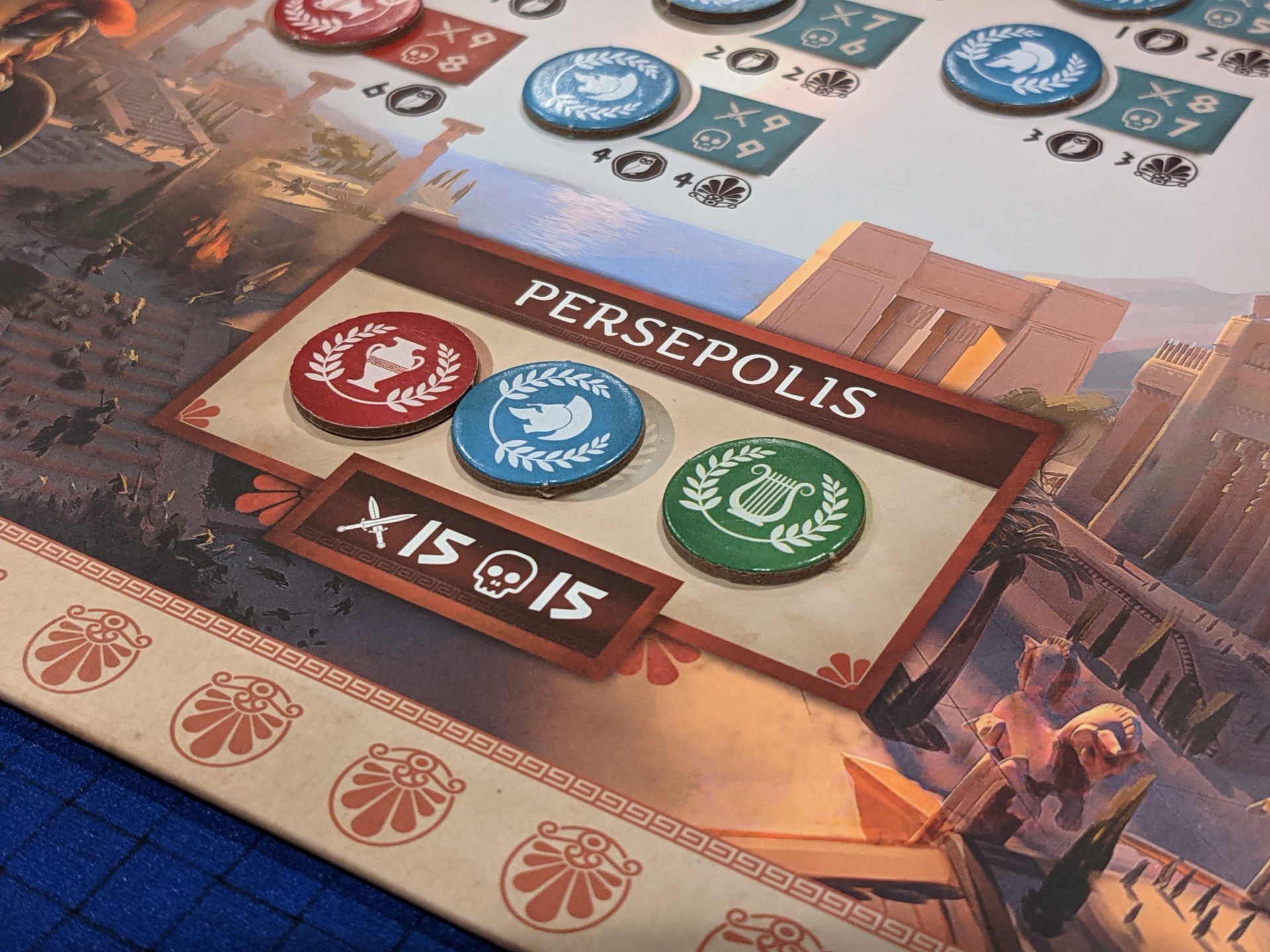
Lots of mechanics in the mix
At its heart, Khôra: Rise of an Empire (which we will refer to as just Khôra for this review), is a civilization game tucked into the heart of a Euro. Sure, I need to conquer parts of the board, but I’m doing that to collect tokens which allow me to unlock cards. There’s no direct conflict here, so as you work up your engine and pair that with the action selection mechanism, there’s a lot of fun to be had as you build up your city.
Khôra takes place over 9 rounds, and there are 7 phases in each round. Players operate as the leaders of their randomly-selected City tile (Athens, Miletus, etc.) to score the most points by maximizing their engine, and this starts with a Politics card draft where players can begin to plan out their strategy before the game even begins.
A note about drafting cards: in any game that is new to me, I generally skip this step, and just hand players the required number of cards. We don’t know how best to play, so how are we going to go out and draft the right cards to play into a strategy? With Khôra, you MUST draft cards, and we’ll get to why later in this review. Khôra makes some of this easier by doing such a great job of calling out where and how cards may play into each other.
Once the game begins, an event card is revealed in each round to slightly change some of the rules for that round; maybe you’re going to get free coins, or suffer a penalty if you are the lowest on a particular track. On a scale of 1 to Dominant Species—easily the most game-breaking effects on event cards I have ever seen—event cards are maybe a 2 in Khôra. I have rarely found that planning around events in Khôra leads to major gains or losses from round to round.
From there, gameplay is smooth: collect income, roll dice, then assign actions to the dice that are rolled. All players have access to the same seven actions, from gathering resources or points, to gaining another round of income, to upgrading your player board’s actions or playing cards.
Actions are taken simultaneously, save for one: military actions, where players in turn order can snatch Knowledge tokens which are used to play more cards or better actions on your City tile. Later in a round, players can spend money to advance one of their economy, culture or military tracks to gain one-time bonuses while making their dice actions more powerful each round.
Unlike many Euros I have played this year, most of a player’s score in Khôra comes during the main game, not as end-game scoring (imagine that!). Some of a player’s end-game scoring cards and player board developments do add points, and there’s also a “Glory” track that gives a bonus based on advanced military actions multiplied by a player’s place on this track. In the case of a tie, cash reigns supreme!!
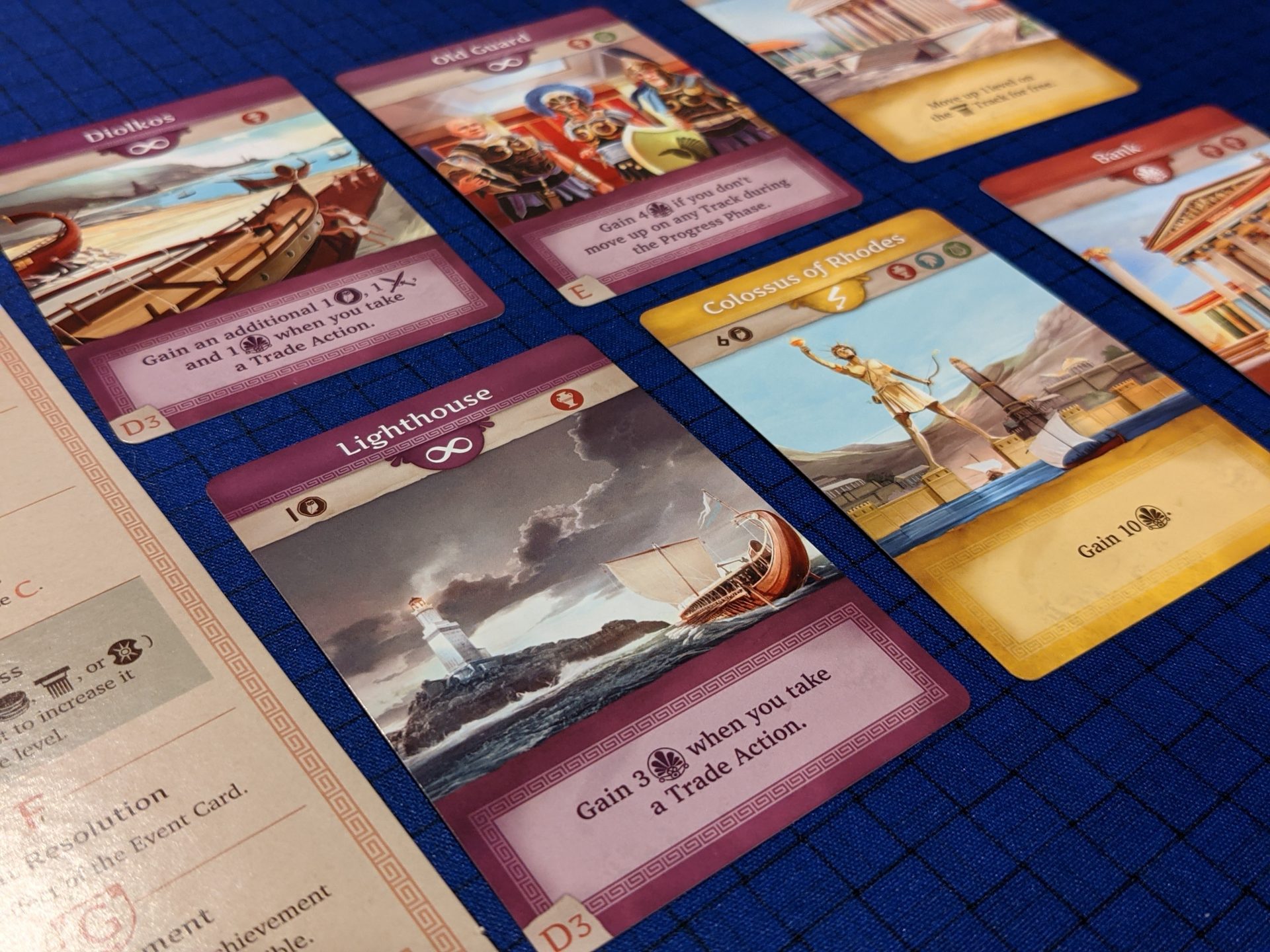
The decision space is lovely
The gameplay elements of Khôra described above probably left you thinking “Meh, I’ve seen or heard this story before.” But I can assure you: the decision space in Khôra is why my game group has continued to put it back on the table.
The dice rolls are very well mitigated by the Citizens track; in this way, you will almost always be able to get around low dice rolls. In other cases, Politics cards drafted before the game begins will allow players to build up ongoing effects that power up the actions tied to lower dice rolls, such as the Philosophy or Culture actions.
And deciding which cards to play, which bonuses on your starting City tile to activate, and picking which Knowledge tokens to take from Military actions to play certain cards has continued to be rich. The 7 City tiles available all help nudge a player into a certain direction; I found in my first game that intentionally avoiding the City tile was a poor choice, so in future games, I leaned into each City tile, particularly ones featuring juicy ongoing powers I want to take advantage of.
In Khôra, players start with only two dice—allowing for two actions per round—but a third die is available by advancing to the third level of the Culture track. However, depending on your engine, you may not even need to unlock that third die! In my most recent game, one person went hard towards getting that third die early in the game, at the cost of doing other actions to spread out his presence on the Military and Economy tracks, ultimately at his peril. I waited until the 8th round to unlock my third die, and then used that to make sure I had plenty of actions to choose from for the final round.

Now, About Those Politics Cards…
I love that Khôra begins with a card drafting round so that players can set up their strategy. A bit like Grand Austria Hotel, this allows for players to set up plans while also looking for specific cards.
This also means that you might have cards that string together nearly unbeatable combinations; if you can’t draft a set of cards that play well together, you will be at a disadvantage that will be difficult to overcome.
In my very first game of Khôra, we had a scenario just like this; one player was able to draft 4 cards into his initial 5-card hand that gave him discounts on buying Knowledge tokens as well as being able to move up on the Economy track once per round for free. This, combined with an end-game scoring card tied to his place on the Economy track, was an excellent engine that was basically dealt to him through the initial card draft.
On the one hand, this was the perfect plan by this player to stay in his lane; he mostly used money and the Trade action to ensure he had lots of cash every round. On the other hand, other players were not able to find synergies with their initial hand, which then forced players to use the Legislation action to grab cards that (hopefully) would help build a strategy in the early rounds to mixed results.
Similar to the Uwe Rosenberg game Hallertau, Khôra gives it to you straight: some cards are just going to flat-out be better than others. I’m OK with that; some of the instant action cards are weak, and some of them are great. Some of the end-game scoring cards will give you a chance at scoring 10-12 points, some 15 points or more. And many of the ongoing action cards have to be played with others to really power an engine; the Culture action, for example, is only OK early on, but if you take that paired with 1-2 ongoing power cards that give you more stuff each time you use that action, it can be fun to continuously tap that action.
This is all to say that the card draw can be a little swingy. Just be prepared!
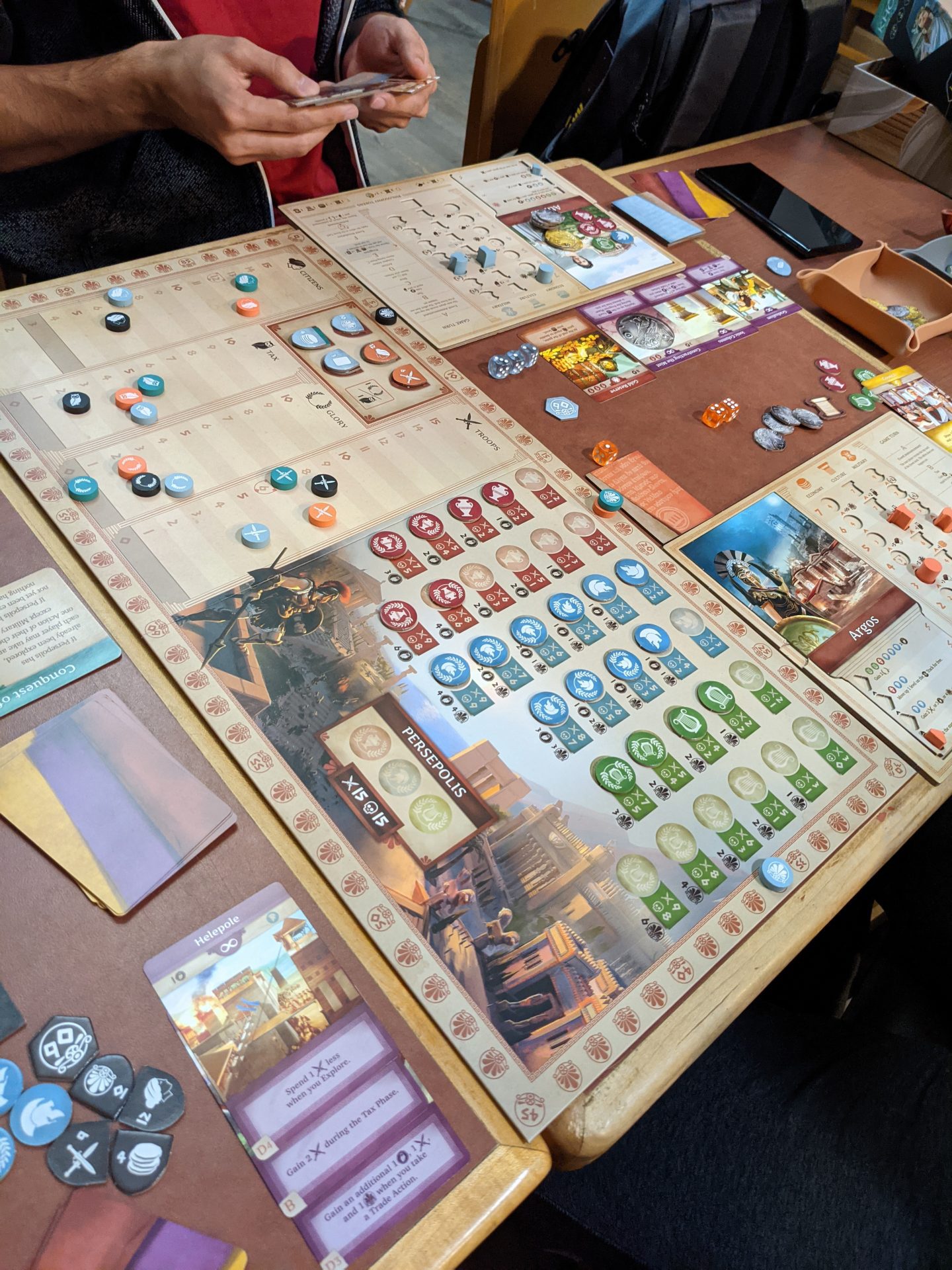
This is a production!
Let’s give Khôra this much: the packaging, the production, the art, the iconography and the rulebook are excellent.
Upon opening the box, you get the sense that being able to quickly unpack and set up the game really mattered to the team at IELLO. The box places slots for all of each player’s action selection tiles and core components in easy-to-grab pockets. The City tiles have their own space, covering the two slots for Politics and Event cards. The player boards cover up the sections which hold coins, Philosophy tokens, and Knowledge tokens.
It’s just a really clean look, and I was able to put away the entire game in 6 minutes the first time I loaded the box after a complete game by myself. I keep meeting publishers who believe this ease of setup does not matter; publishers, IT MATTERS!!
How many games do you own where you pull out the box, stare at it lovingly, then realize it will take 25-30 minutes to set it up, and just as long—if not longer!—to put it away? I’ve got kids, man; time is valuable, and if I can spend that hour in setup/teardown time playing a complete other game, I am going to do that!
The iconography of Khôra is really clean. My only quibble comes with the Tax icon; if there’s no circle around it, it’s the Tax track, but if it’s that same owl in a darkened circle, it’s a coin. After 10 minutes, you will recognize the difference but I wish there was a different symbol for coins.
But that is the only issue with the iconography. IELLO pulled off a number of great touches: sticking with the standard for instant actions vs. ongoing power icons (a lightning bolt versus the infinity symbol), but then they shaded the cards so that players can quickly recognize which cards they should prioritize when drafting. The player boards lay out the phases of a round quite clearly, and it’s always easy to tell what Knowledge symbols you will need to take Development actions or purchase Politics cards.
And on all of the Politics cards, there are words! WORDS!! As strong as the iconography is, text helps to clear up any questions on the cards as you navigate what each card will do during each phase in a round, when taking certain actions or when calculating end-game scoring bonuses.
Those player boards, by the way? Super thick. On Mars thick. The different components used to track your Developments, Culture, Military and Economy levels are all different shapes. Frankly, I felt this to be a little over-the-top, but each time I introduce Khôra to other players, it just gives those players a sense of luxury.
In terms of the production, the only miss is the coins. I’ll be frank: my Iron Clays poker chips will be substituted when playing Khôra in the future. The coins in the game box don’t feel great in the hands, there aren’t enough singles in the box, and the writing on the coins just doesn’t seem to fit aesthetically. That’s OK! Poker chips are better anyway.
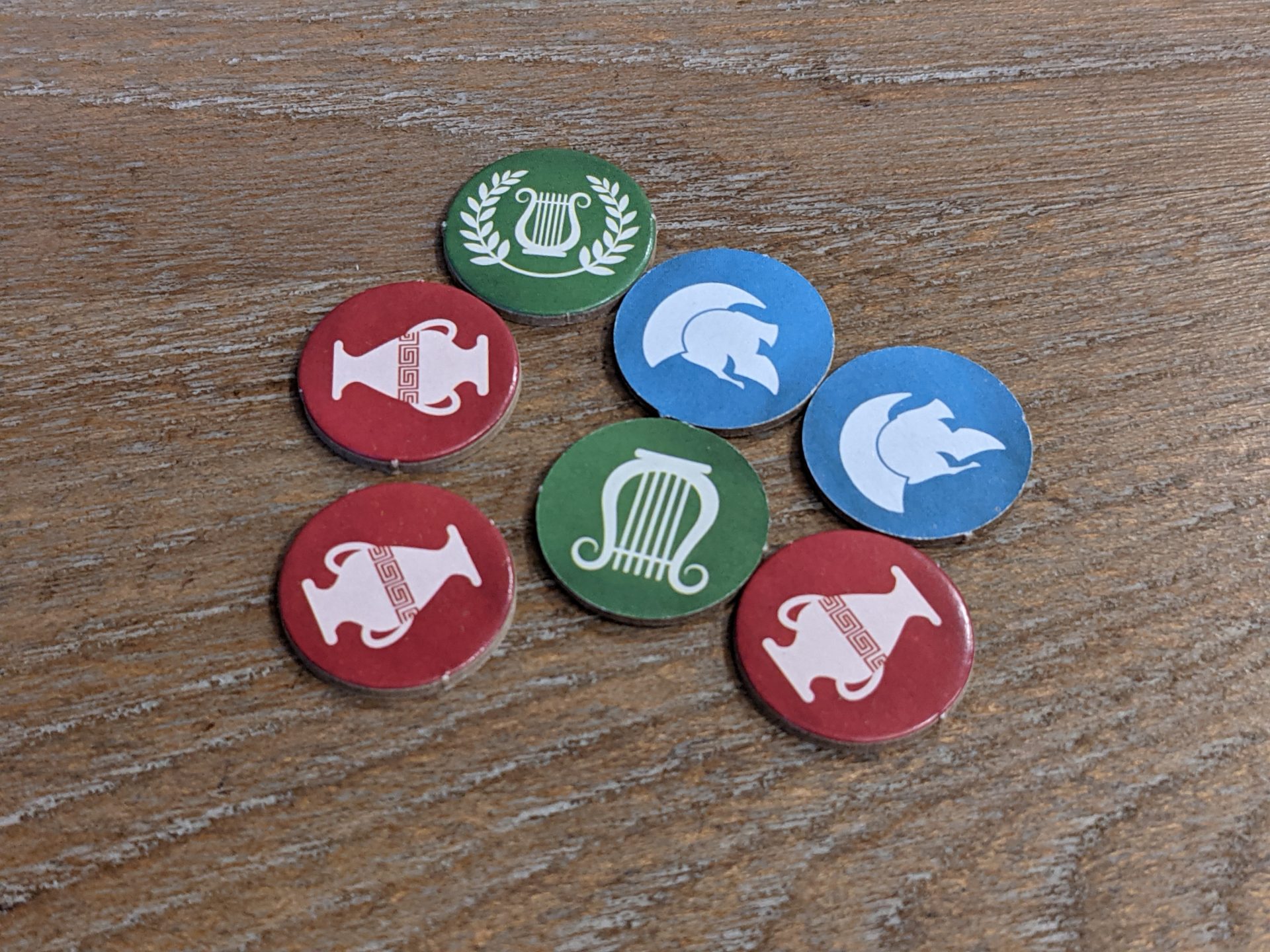
More, Please
Khôra works! Gameplay offers plenty of chances to make interesting decisions, the dice mechanic is well mitigated with the Citizens track, and there are plenty of ways to win the game. I can already imagine expansion content being developed to create a more interesting Event deck and more variability in the Politics deck. And I think the production is mostly excellent.
If you are looking for a mid-weight Euro packaged as a light civ game, Khôra will be a strong addition to your collection, and it will get you a 4-player contest in and out the door in under 90 minutes. At 2 players, this might be a 45-minute affair with quick decision makers, and those decisions will constantly be interesting.
IELLO: more Expert games, please!


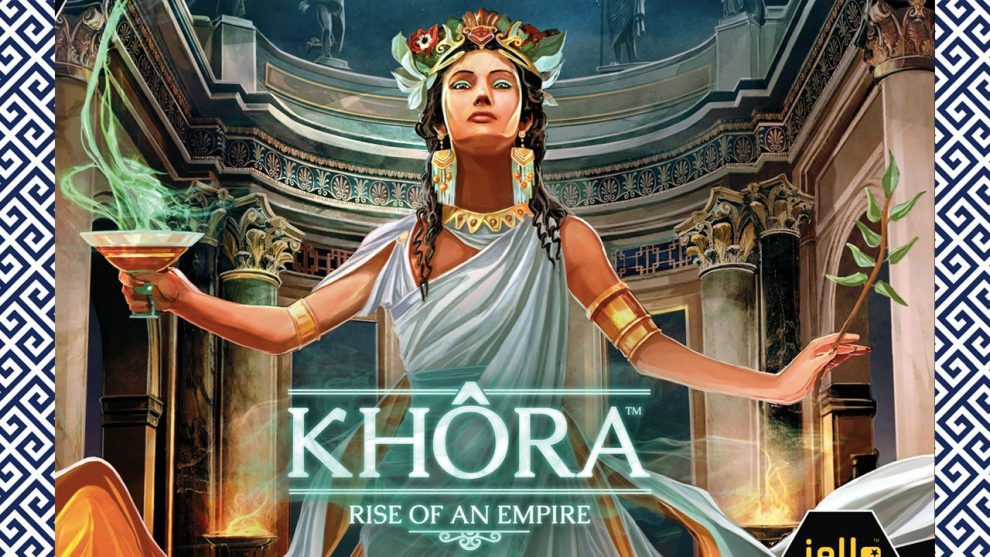

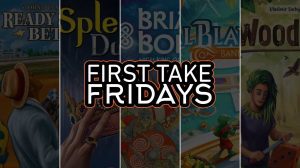
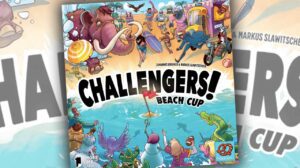
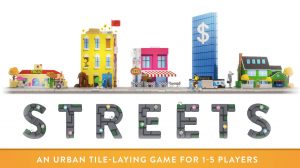
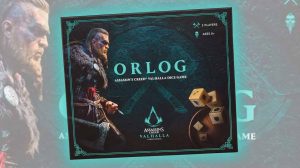




Add Comment